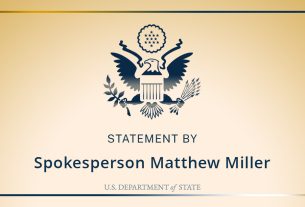In a stunning decision issued on Friday, a federal judge in Texas moved to revoke approval of mifepristone, a safe and effective drug used for medical abortion. In a separate decision issued minutes later, a federal judge in the United States state of Washington ordered the US Food and Drug Administration (FDA) to keep mifepristone available in several states.
The two rulings directly contradict one another and have caused confusion and uncertainty. For now, mifepristone is available: The Texas ruling will not go into effect until 7 days after it’s issuing. Today, the US Department of Justice asked a federal appeals court to put the ruling on hold while its appeal is heard. The case could end up before the Supreme Court.
Mifepristone is one of two drugs – the other being misoprostol – used in medical abortion. Since its approval in 2000, more than five million people have used mifepristone to safely end their pregnancies. Medical abortion accounts for more than half of US abortions.
The Texas ruling stemmed from a lawsuit filed by anti-abortion doctors and groups asking a federal court to revoke FDA approval of mifepristone and issue a nationwide injunction. The ruling by Judge Matthew Kacsmaryk is not rooted in medicine, science, or basic rights, and could undermine the FDA’s authority to determine the safety and efficacy of medications.
Importantly, it will not block access to misoprostol, which alone can safely end a pregnancy.
The Washington ruling came in response to a lawsuit filed by the attorneys general of 17 states and the District of Columbia arguing that the FDA should expand access to the drug.
Experts argue that the FDA retains significant enforcement discretion and authority to determine the availability of mifepristone going forward.
Since the Supreme Court overturned the constitutional right to abortion access, more than a dozen US states have banned nearly all abortion, and other states maintain harsh restrictions. These enormous barriers to healthcare disproportionately impact Black people and other people of color, as well as other populations facing challenges to obtaining reproductive healthcare, including young people, LGBT people, immigrants, people living in poverty, and those in rural communities.
Abortion access is an international human right and everyone should be able to make decisions about their reproductive health. The US should fight any attempts to restrict access to medical abortion.


